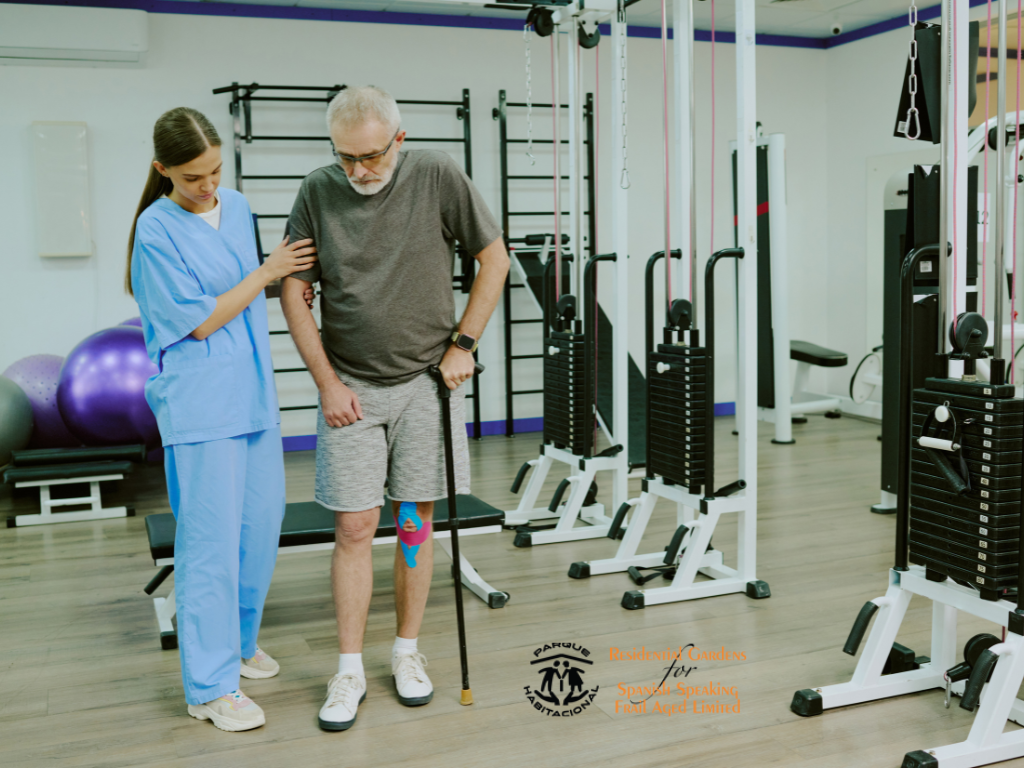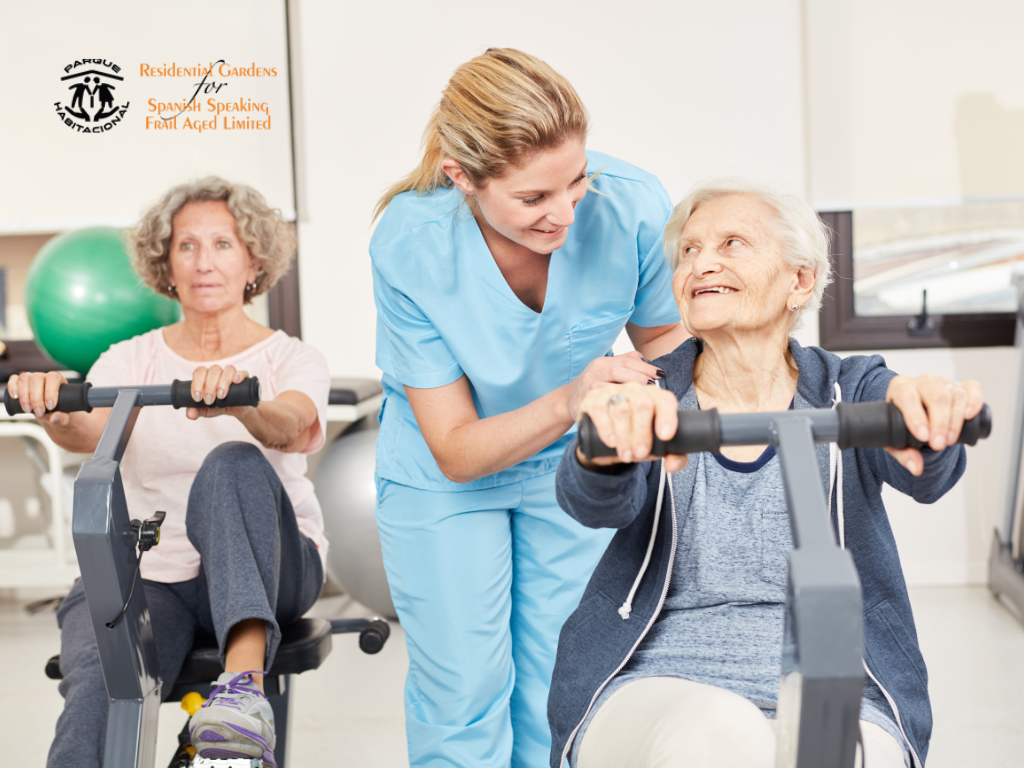When people think of care in aged care nursing homes, they often imagine medical support, comfort, and daily assistance. While these are essential, emotional wellbeing is just as important. Many seniors experience feelings of loneliness, stress, or uncertainty, especially when adjusting to a new environment. That’s why focusing on emotional health has become a key part of modern care. aged care nursing homes now understand that happiness and connection are vital for overall wellbeing. It’s not only about extending life but improving its quality. Emotional balance helps seniors feel more positive, confident, and engaged each day.
One of the most effective ways to support emotional health is through physical therapy and rehabilitation. Movement and activity are powerful tools — they improve mood, boost energy, and give residents a sense of accomplishment. When combined with social activities, therapy sessions create a stronger sense of belonging. Residents don’t just heal physically; they also rediscover purpose and joy through active participation.
The Connection Between Movement and Mood in physical therapy and rehabilitation
How gentle exercises boost mental health
Movement has a direct impact on mental wellbeing. During physical therapy and rehabilitation, seniors perform gentle exercises that release endorphins — the body’s natural feel-good chemicals. These hormones reduce stress and improve mood, helping residents feel calmer and more relaxed.
Therapy sessions also help reduce symptoms of depression and anxiety, which are common in aged care nursing homes. Simple routines like stretching, balance training, or guided walking can lift spirits and make everyday life feel brighter.
The role of consistency in recovery
It’s not just about doing exercises once — consistency is the key. When therapy becomes part of a regular routine, seniors gain both physical and emotional strength. They start to notice improvements in mobility, which leads to more independence and confidence. That growing sense of control often translates into emotional stability. Residents begin to look forward to sessions, as they provide structure, social interaction, and a way to stay connected with others.
Many therapists also tailor programs to suit each person’s preferences — for example, including light music, group activities, or gentle outdoor sessions. These thoughtful touches help make physical therapy and rehabilitation enjoyable rather than a chore.
Helping nursing home patients Feel Connected and Engaged

In aged care nursing homes, loneliness can be one of the biggest challenges. Many nursing home patients miss the familiarity of home, their family routines, and social connections. That’s where group therapy and interactive sessions play a vital role.
Through guided activities, nursing home patients can reconnect with others in a fun, relaxed setting. Group exercises, dance sessions, or even light yoga classes bring people together while improving flexibility and balance.
Here’s how therapy helps residents stay connected:
- Encourages social interaction: Sharing exercises and progress builds friendships.
- Promotes teamwork: Group sessions make therapy feel like a shared journey.
- Improves communication: Regular activities help break down isolation and encourage open conversation.
Therapists and caregivers also play an important role in motivating residents. Their positive energy and friendly approach help nursing home patients stay engaged and confident in their recovery. With emotional support, laughter, and movement combined, therapy becomes more than a physical treatment — it becomes a source of happiness and connection.
Building Confidence Through Personalised nursing home care nsw
Creating routines that empower seniors
A big part of recovery in nursing home care nsw is helping residents regain confidence in their daily lives. When seniors feel capable and included, their emotional wellbeing improves. Personalised care routines that combine physical exercises with gentle motivation give residents a sense of purpose and control.
Therapists and carers often create structured yet flexible programs that help residents move comfortably at their own pace. Whether it’s walking practice, stretching, or simple breathing exercises, every activity is designed to rebuild confidence and encourage independence.
Encouraging independence in daily life
physical therapy and rehabilitation also help residents manage daily tasks — from standing safely to moving around their rooms. These small wins are incredibly empowering. Every improvement brings a sense of pride and achievement.
Through regular encouragement and tailored therapy, nursing home care nsw becomes not just about medical support but about restoring dignity and self-reliance. Seniors learn that progress is possible, and that belief often leads to improved mood and stronger motivation to stay active.
The Role of Carers and Therapists in aged care nursing homes
Behind every successful recovery story in aged care nursing homes is a team of compassionate carers and therapists. These professionals don’t just treat; they connect, listen, and understand. Their support plays a major role in both emotional and physical healing. Carers ensure that each resident feels valued and respected. They provide gentle reminders, friendly conversation, and emotional reassurance during therapy sessions. This human connection helps build trust — something especially important for nursing home patients adjusting to a new environment.
Therapists, on the other hand, use expertise to guide exercises that improve strength, coordination, and flexibility. Together, carers and therapists form a strong support system that focuses on the whole person — mind, body, and emotions. By working together, they make sure that every resident receives the right balance of encouragement, care, and professional guidance to stay positive and active each day.
Making Wellness a Routine: Integrating physical therapy and rehabilitation into Daily Life
Gentle exercises that fit any schedule
Wellness in aged care nursing homes doesn’t stop at therapy sessions. It’s about creating a lifestyle that keeps residents moving and motivated. Small, simple routines such as morning stretches, short walks, or chair exercises make a big difference when done consistently.
Therapists often design programs that fit naturally into daily life, making movement easy and enjoyable. These low-impact exercises can improve flexibility, reduce stiffness, and even improve sleep quality.
Encouraging active and positive living
Encouraging residents to stay active goes beyond physical health. Movement promotes engagement, builds friendships, and boosts self-esteem. Group sessions, games, or even gardening activities are fun ways to integrate physical therapy and rehabilitation into daily routines.
When therapy becomes part of everyday life, it no longer feels like treatment — it feels like a natural and enjoyable part of living well.
A Holistic Approach to Happiness in nursing home care nsw
True wellbeing in nursing home care nsw is about more than just physical recovery. It’s about creating a balance between emotional happiness, physical strength, and social connection. When residents feel supported in all three areas, their overall quality of life improves dramatically. physical therapy and rehabilitation are essential in achieving that balance. They keep the body active, the mind sharp, and the heart happy. When paired with compassionate care and positive surroundings, residents experience real joy and purpose.
By combining gentle movement, emotional support, and genuine connection, aged care nursing homes can create an environment where every resident feels seen, heard, and valued. In the end, recovery isn’t just about walking again — it’s about smiling again, socialising again, and feeling alive every single day.



